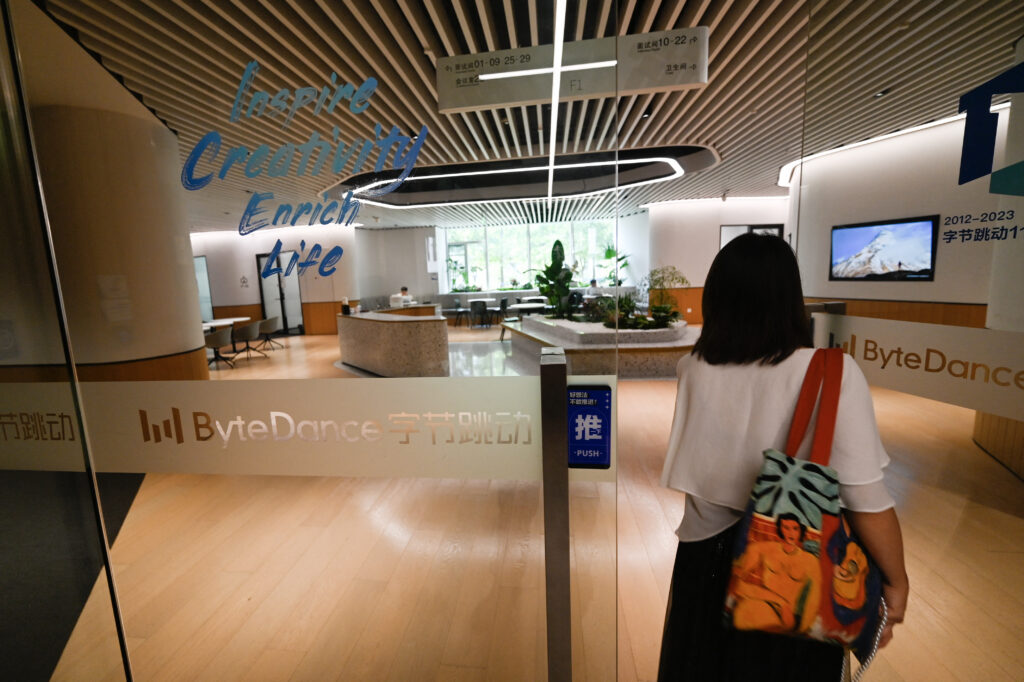
You may have heard about university students and recent graduates benefiting from internships, but did you know that high school students can gain significant advantages from them as well?
According to The Society for Human Resource Management, 90% of employers believe high school internship programmes can enhance a student’s college admission chances.
An internship provides a valuable opportunity to explore a field or industry before committing to a degree and career path.

A pre-university internship is a chance to meet people beyond our usual circle. Source: AFP
Similar to work experience or mentorship programmes, pre-university internships offer support and supervision while involving entry-level tasks and projects. This experience provides exposure to a professional environment and hands-on training, helping students develop both soft and practical skills relevant to their interests.
This is increasingly important given the findings of the Careers After Covid report, published by Launch Your Career on May 11, 2021. The report revealed that 70% of secondary school students are uncertain about their career paths after graduation, and 78% worry about making the right career choice.
Pre-university internships can help in this aspect. Whether assisting in a research lab or shadowing marketing professionals, students gain firsthand insights into daily tasks and industry challenges.
This exposure can help clarify or redefine career goals, leading to a more informed choice of university path. In essence, internships allow students to test potential career paths and gain clarity through real-world experience.

Pre-university internships help teens grasp industry standards and practices, providing a clearer perspective on what’s expected in their chosen field. Source: AFP
Robin D. Richards, chairman and CEO of Internships.com hails high school internship as a “win-win for employers and students.
“For students, work experience is the key to ensure they make a good career decision and build their professional network,” he says. “By employing students, companies get exposure to talent early in their career journey and help support the well-being of the local community.”
4 key reasons for pursuing a pre-university internship
1. Gaining real-world experience and clarifying career aspirations
One of the biggest benefits of a pre-university internship is gaining real-world experience. While high school education provides a solid foundation, it often lacks the practical insights to understand how academic concepts apply in professional settings.
During an internship, students are exposed to the day-to-day operations of a business or organisation. They learn about industry-specific practices, project management, and problem-solving in a real context.
This experience is invaluable for helping students grasp the nuances of their chosen field and develop a clearer understanding of their interests. For example, a student interested in engineering might discover a passion for a specific field branch, such as civil or mechanical engineering, through hands-on experience.
Plus, internships help students better understand their career aspirations. Many high school students have broad or evolving career goals. By participating in an internship, they can explore different roles within their area of interest and gain insight into what they enjoy or find challenging.
This practical exposure allows them to make more informed decisions about their academic path and career trajectory, ensuring they pursue fields that genuinely resonate with their interests and strengths.

By working alongside industry professionals, your child can build a network of contacts that may prove valuable for future internships, job searches, and career advancement. Source: AFP
2. Building a professional network and enhancing resume
Networking is a crucial element of career development, and starting early can provide significant advantages. A pre-university internship allows students to build a professional network within their chosen field.
Establishing connections with professionals, mentors, and peers can open doors to future opportunities, including internships, job offers, and valuable advice on navigating their career paths.
For instance, a student who interns at a marketing firm may build connections with industry professionals who can offer guidance, recommendations, or even job opportunities in the future. These early networking experiences can lead to valuable mentorships or professional relationships that enhance the student’s career prospects.
In addition to networking benefits, a pre-university internship adds significant value to a student’s resume.
Having practical experience listed on a resume demonstrates initiative, commitment, and a proactive approach to career development. This can set a student apart from their peers when applying to universities or seeking future internships and job opportunities.
Universities often look for candidates with real-world skills and a strong work ethic, both of which are highlighted by successful internships.
3. Developing essential soft skills and professionalism
Internships are a prime opportunity for students to develop essential soft skills critical for career success.
While technical skills are important, soft skills such as communication, teamwork, and problem-solving play a crucial role in professional environments. These skills are often difficult to teach in a classroom setting but are vital for navigating the complexities of the workplace.
During an internship, students learn to communicate effectively with colleagues, supervisors, and clients. They gain experience presenting ideas, collaborating on projects, and managing conflicts. These interactions help students refine their interpersonal skills, which are crucial for success in any career.
Professionalism is another key aspect that internships teach. Students learn the importance of punctuality, reliability, and maintaining a positive attitude in a work setting. In the Employer Career Competencies survey, all employers rated “Professionalism/Work Ethic” as 100% essential but stated that only 42.5% of employees exhibit these behaviours.
Doing a pre-university internship enables students to experience the expectations and norms of a professional environment, which helps them develop a strong work ethic and understand the importance of meeting deadlines and producing quality work.
This exposure to professionalism prepares students for the demands of university and future employment.

Gaining practical experience boosts your child’s confidence in their abilities and decision-making, preparing them for the challenges of higher education and beyond. Source: AFP
4. Boosting confidence and independence
Completing an internship successfully can significantly boost a student’s confidence and sense of independence.
Facing real-world challenges and achieving goals professionally helps students build self-esteem and a sense of accomplishment. This newfound confidence translates into better performance in university and beyond as students learn to navigate responsibilities and setbacks more resiliently.
Internships often require students to leave their comfort zones and tackle unfamiliar tasks. This experience helps them develop problem-solving skills, adapt to new situations, and maturely handle responsibilities.
As students gain confidence in their abilities, they become more self-assured and proactive, qualities that are essential for success in both academic and professional settings.
The independence gained from managing work tasks, and projects also contributes to personal growth.
Students learn to take initiative, make decisions, and handle challenges on their own. This sense of independence prepares them for the demands of university life, where self-motivation and self-management are crucial for success.









